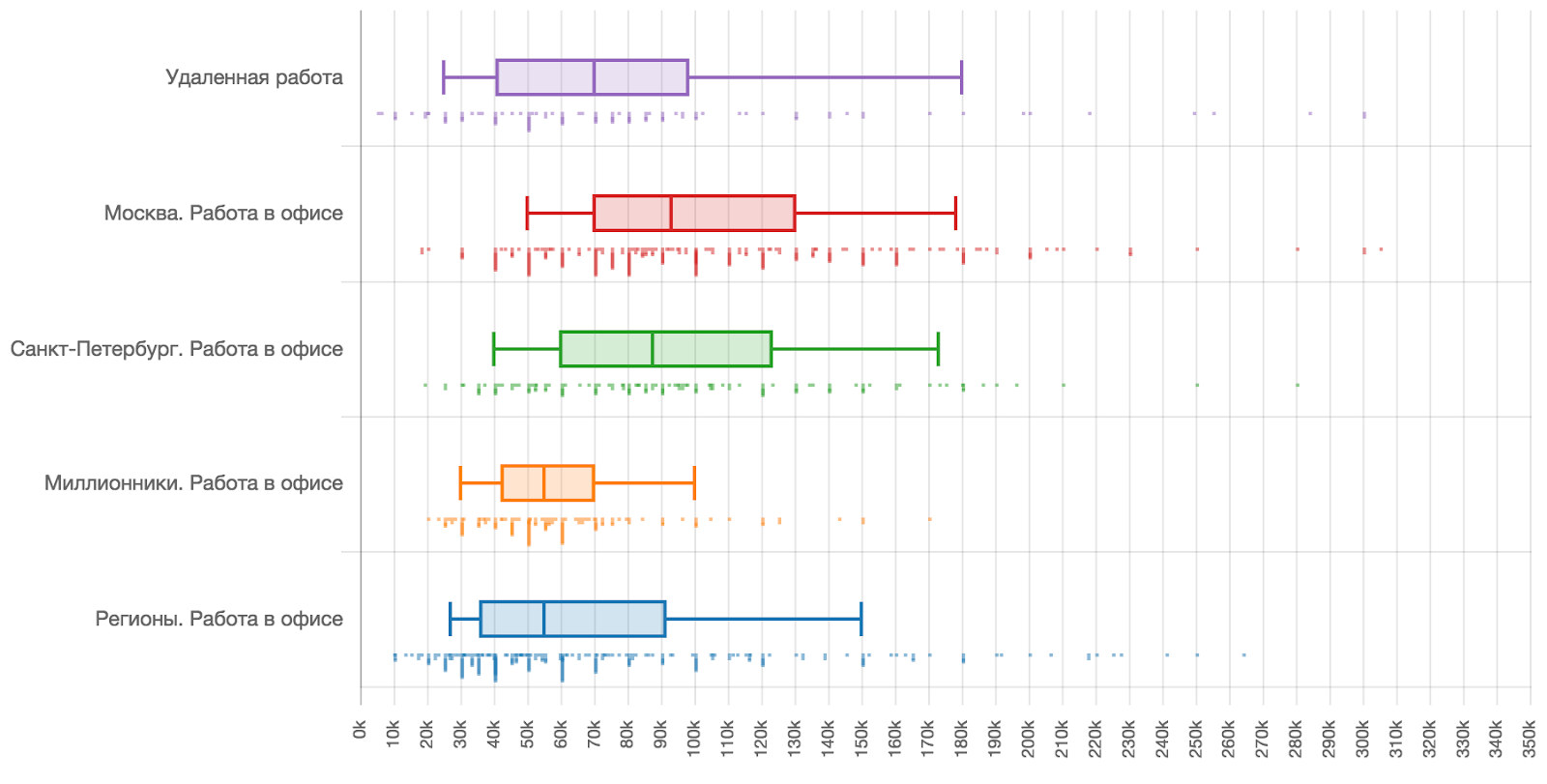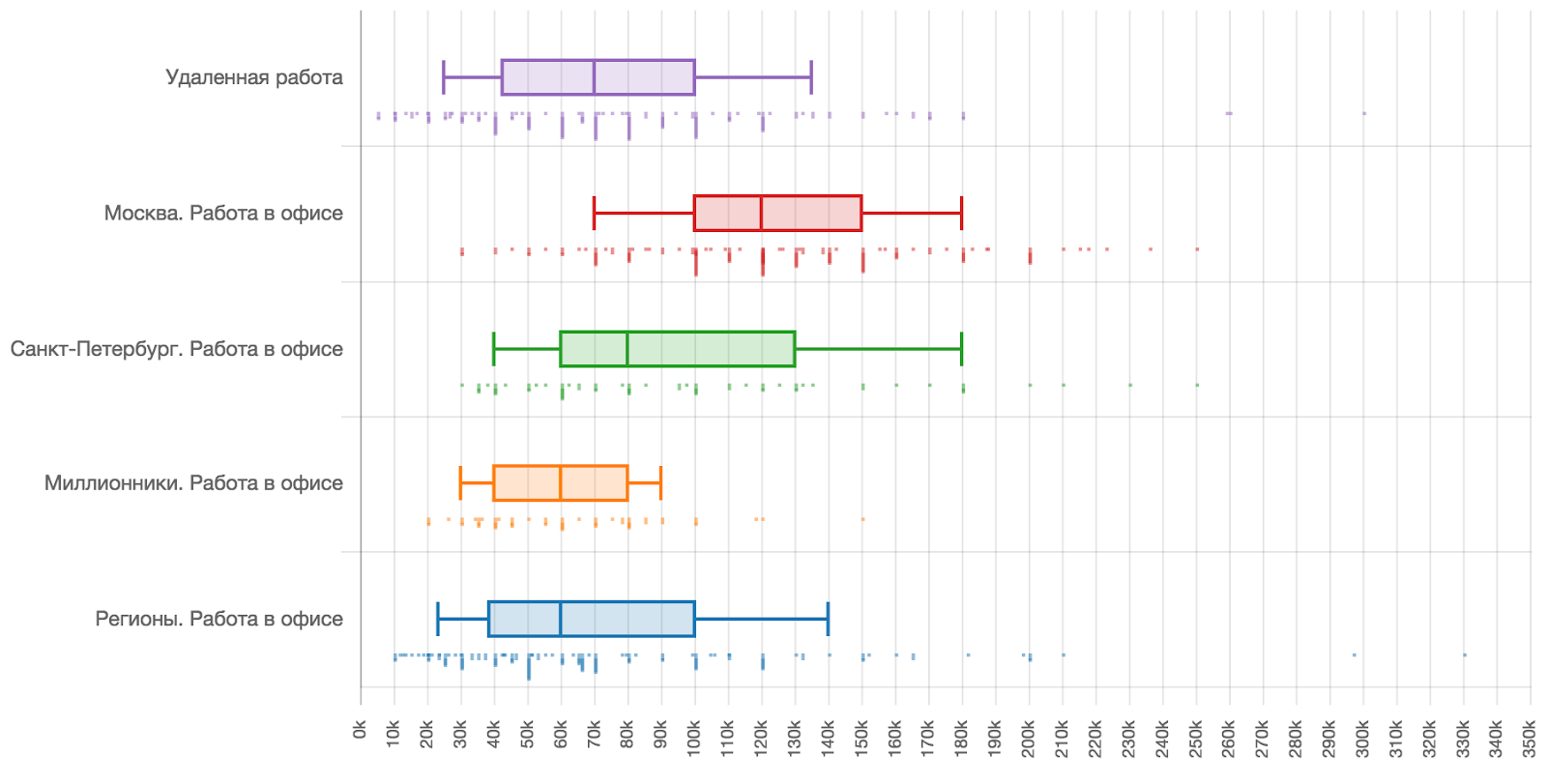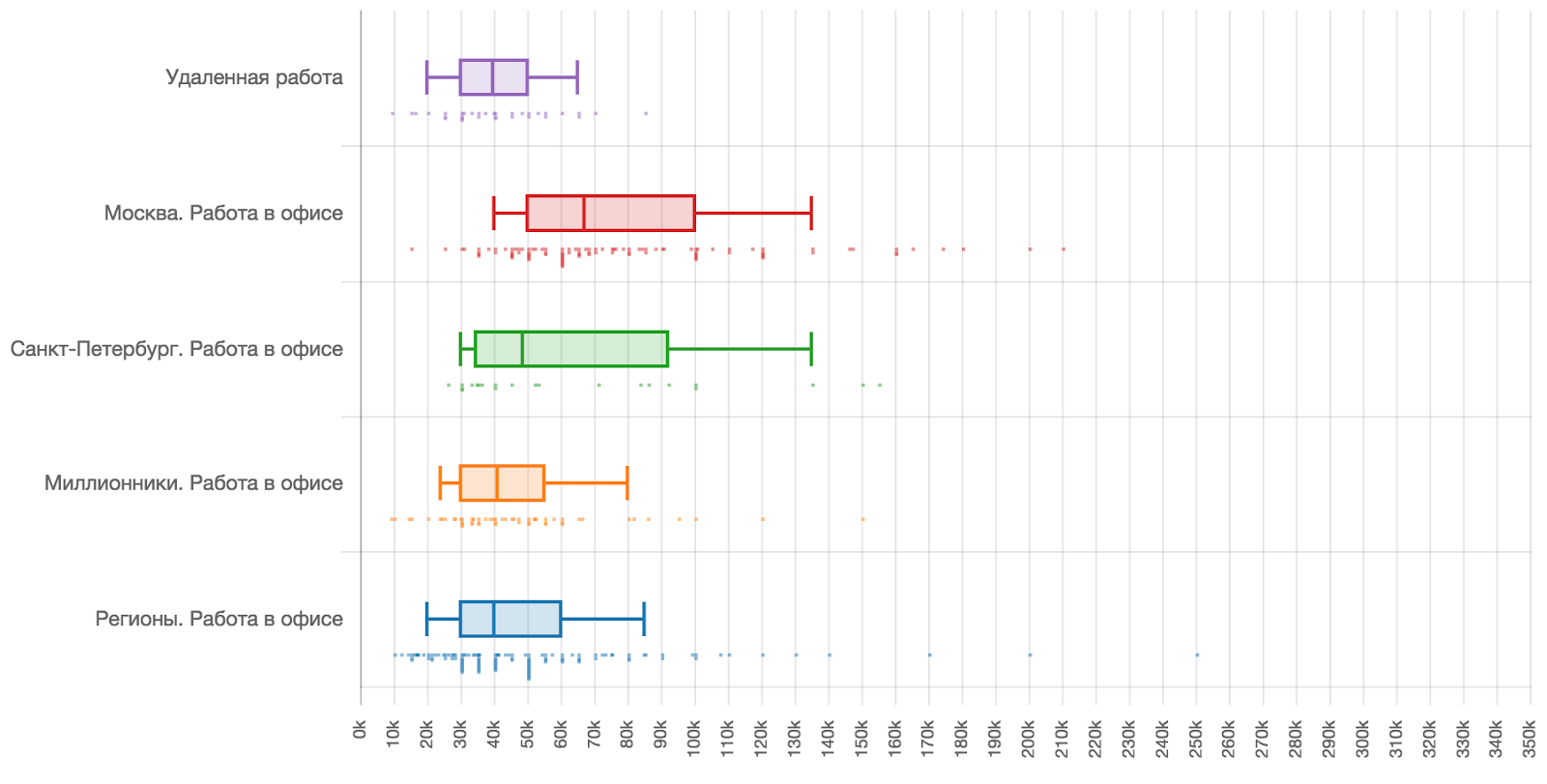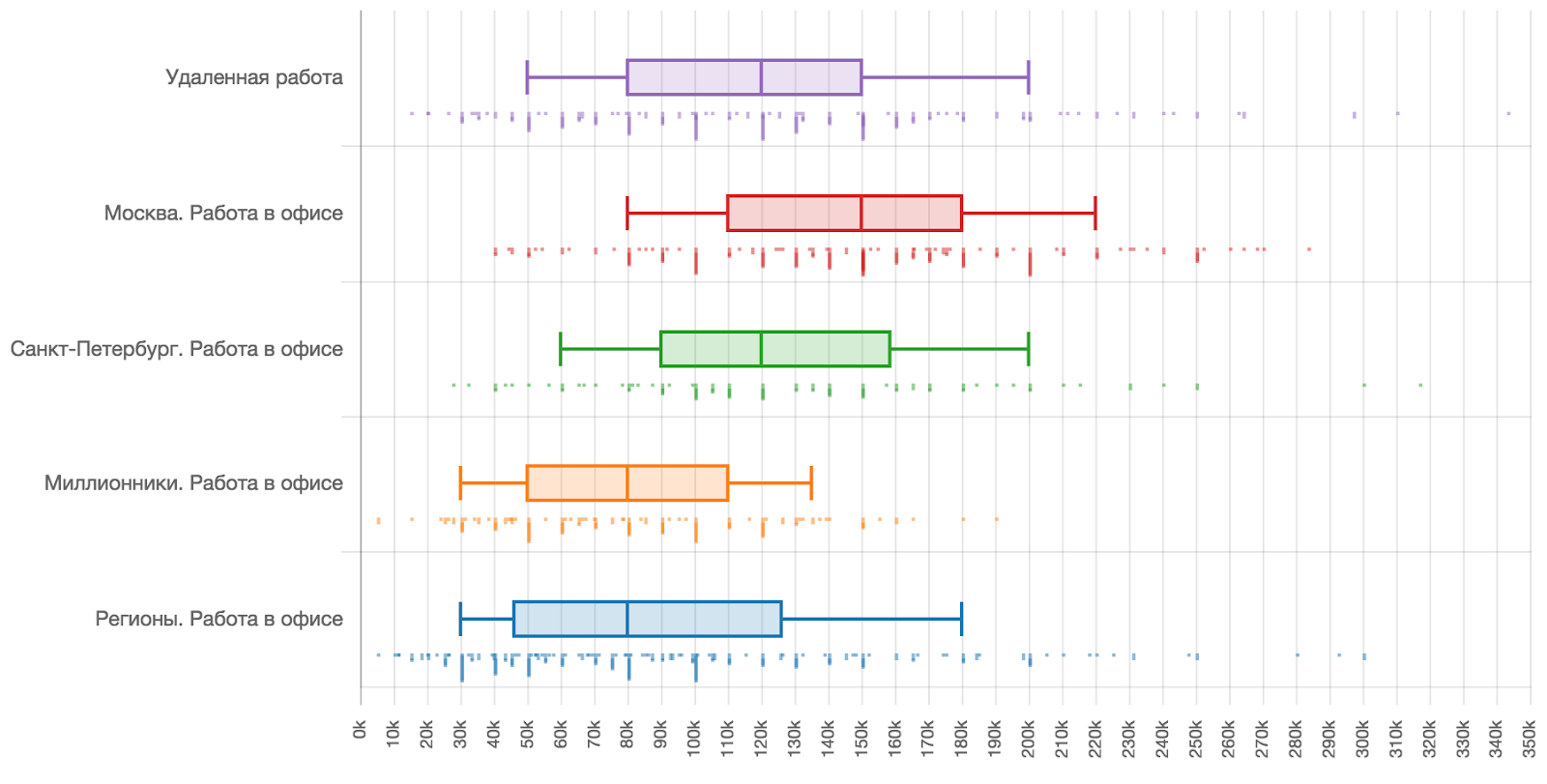Who earns more in IT: office or remote employees?

On My Circle, 40% of vacancies offering remote IT jobs are posted every month (according to data for 2017, there were 35% of these). At the same time, judging by the service summary database, 65% of specialists are ready for remote work. There is an obvious gap between the demand of employers for remote work and the supply of applicants for it.
As a result, the responses to jobs with remote work are on average 4-5 times more than to vacancies with office work (according to data for 2017, there were 3-4 times more). With the growing shortage of IT specialists, it is obvious that employers who are willing to move to remote work find themselves in a better position, because this approach allows them to get more choice, and therefore the best staff for their company.
In addition, remote employees do not require the maintenance of an office space with all the costs involved: utility costs, cleaning, office rent, workplace equipment, etc., which allows the company to reduce its costs. Many startups work only with remote employees, because saving on the office at first is as important for them as the quality of their product or services.
There is also an opinion that the cost of remote employees is lower than office ones, which allows companies to save on the wage fund. And today we will find out if this is really so. To do this, take the data on wages that IT professionals left for a year in the calculator of wages “My circle”, and compare the salaries of remote employees with the salaries of employees in the offices of Moscow, St. Petersburg, million-plus cities and other cities.
For comparison, let's go over the main areas of activity in IT, and then look a little deeper into individual development specialties.
We remind you that we are preparing a large salary report for the second half of 2018, if you have not left your salary, you can do it here .
How to read diagrams
In the following charts, all salaries are shown in rubles. These are the salaries received on hands, after deduction of all taxes. Dots indicate specific salaries. A group of points for each sample is visualized using a “box with a mustache”. The central vertical line shows the median salary (half salaries are lower, and half higher than this point, this salary can be considered average), the box borders are 25 and 75 percents (divide the lower and upper half of salaries once again in half, as a result, half of all salaries are between them). The box's mustache is 10 and 90 percentile (it is conditionally possible to consider their minimum and maximum salaries).
Salaries of office and remote employees in general

The very first rough comparison of the salaries of office and remote employees shows a picture completely opposite to that which many present. Remote employees receive an average of 99 thousand rubles, while office workers receive 70 thousand!
Let's look further in more detail: let's go through the main areas of activity in IT and compare the salaries of remote employees with the salaries working in offices in different regions.
Salaries in major IT activities
Salaries in development

Salaries in Testing

Administration Salaries

Salaries in design

Management salaries

Salaries in analytics

Support salaries

Salary in Euchar

So, it turns out that in all areas of activity, without exception, wages in remote work are noticeably lower than in office work in Moscow, slightly lower than in St. Petersburg, but almost everywhere higher than in million-plus cities and other cities. The exception is the management and support, where the salary of the remote workers is about the same as in regional cities.
Let's go further on the main specialization of the development and see how things are going on there with the salary of remote and office employees.
Salaries in development specialties
Salaries backend developers

Salaries of frontend developers

Salaries FullStek developers

Developer Desktop Salaries

Mobile Developer Salaries

So, we see that in software development, wages in remote work, although noticeably lower than office salaries in Moscow, are almost equal to office salaries in St. Petersburg, and noticeably higher than office salaries in other cities.
Thus, the opinion that today “remotes” on average are cheaper than office specialists is incorrect. So you can argue, perhaps, only if we are talking about working in Moscow. In today's realities, remote specialists all over Russia earn almost as much as in St. Petersburg.
All the information we have shown in this report, and even more, you can always find yourself in the salary calculator on My Circle. To do this, just leave your own salary.
